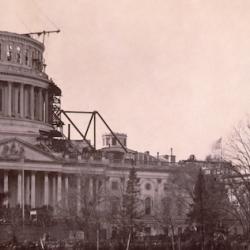Over at The Spectator, James Mumford offers a hard-hitting analysis of the response to the recent Anglican summit. Mumford doesn’t analyze the summit itself, but the blustering response from politicians and the press:
“On Thursday the Labour shadow cabinet minister and former Anglican priest, Chris Bryant, declared he had left the Church of England for good. The Church’s decision will one day ‘seem [as] wrong as supporting slavery’ he tweeted. On Saturday the Times published a full-blown invective. The Church has no right, the editorial claimed, to maintain its traditional doctrine of marriage.”
Such sentiments alarm Mumford, as they should. He writes, “a healthy society hinges upon the freedom of communities to have and to express their take on the most contested dimensions of human identity and morality. And in our brighter moments as a species we have shown that that doesn’t have to involve inflicting harm on members of communities who have reached different conclusions.”
And he worries that something “even more ominous” is embedded in these reactions. Public opinion, he observes, can pave “the way for state intervention.” And then what?
A full-scale assault on religious liberty? It’s happened before, in modern sophisticated Europe: “the 1840s saw cartoons flooding German salons representing Catholics impeding the course of history, a depiction Bismarck was able to capitalise on in the 1870s. He launched his Kulturkampf (‘culture struggle’) against Catholicism on the grounds that it was ‘archaic’. In France in 1902, the acceleration of laïcité under the premiership of Émile Combes – in a single year he closed 13,000 of the country’s 16,000 religious schools – stemmed from the Third Republic’s dismissal of religion as insufficiently modern. While in Russia, Bolshevist propaganda, before and after the Revolution, consistently portrayed the Orthodox Church as an obstacle to social progress.”
Mumford acknowledges that the stated “aim is to eradicate extremism.” But he pointedly asks the right question: “how elastically will ‘extremism’ come to be defined in a society that has moved, without even noticing it, from expecting communities not to compel beliefs to expecting communities not to have them?”
Mumford knows he sounds alarmist. So do all the other observers who see a trend toward suppression or restriction of orthodox faith. It can’t be helped. Alarms, after all, have a purpose. Sometimes they have to be sounded.














